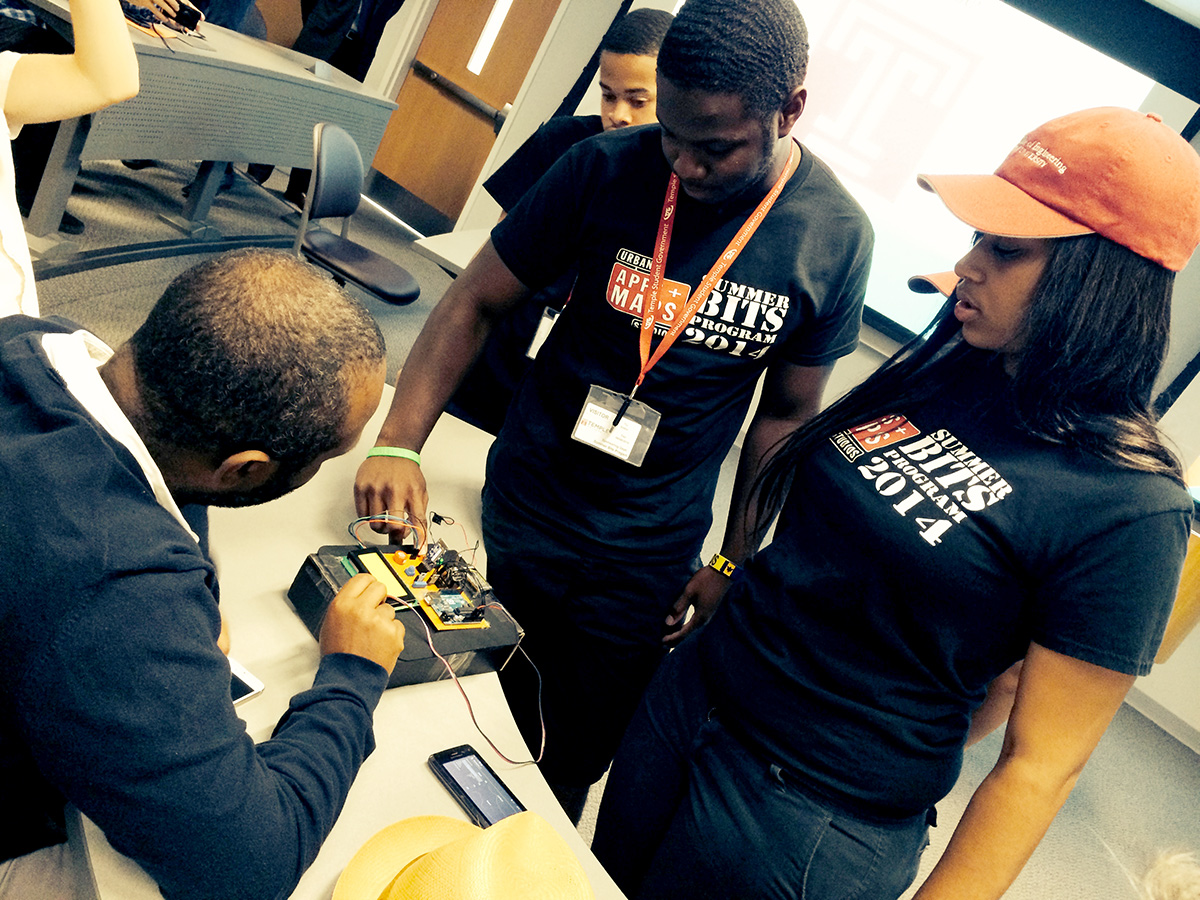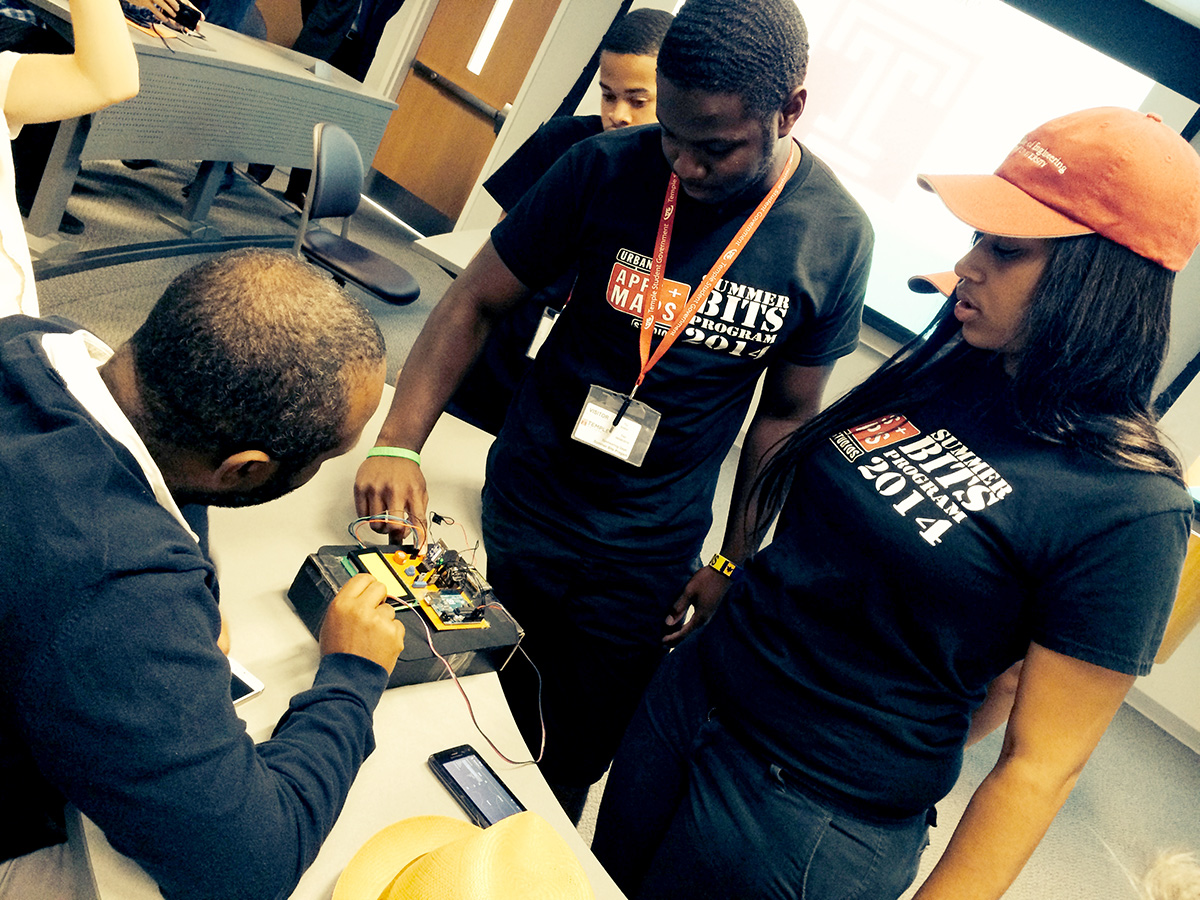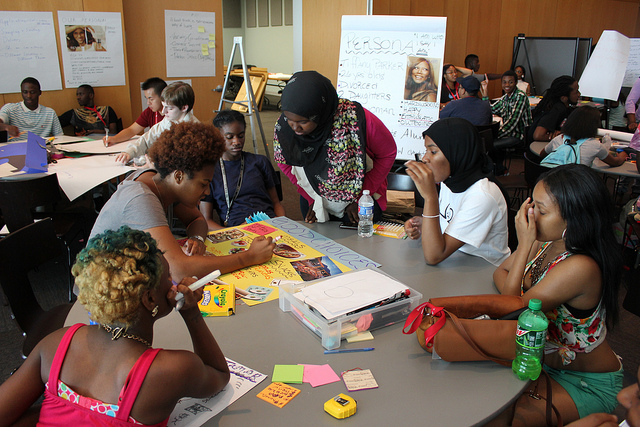
Temple University summer program teaches kids digital literacy skills
Above: Apps & Maps students working on Gotcha App development. Credit: Urban Apps & Maps Studios.
Youngjin Yoo is director of the Center for Design+Innovation at Temple University and leads the Urban Apps & Maps Studios there, which Knight Foundation supports.
Over the last three years, Temple University’s Urban Apps & Maps Studios has been running Apps & Maps BITs Summer Program. This year, 95 girls and 84 boys participated in the program. From July 1 through Aug. 5, these students worked on several hands-on projects to learn three essential digital literacy skills: design thinking, computational thinking and spatial thinking.
Photo: Apps & Maps participants creating visualization of self-image Credit: James Moustafellos
The group worked with more than 30 Temple students who were supervised by 10 Temple faculty members from various academic departments, including information systems, geography and urban studies, electrical engineering, computer and information science, English, arts and entrepreneurship. The program was funded by Knight Foundation, together with the U.S. Economic Development Administration and Philadelphia Youth Network.
This year, participating students worked on the following projects:
- Building Bluetooth-enabled RC cars
- An Internet-enabled device to measure airborne pollution
- Mapping Philadelphia Urban Ecology (vacant lands, natural parks, urban forests and heat islands, urban farming and food access, water supply)
- Designing a mobile app for freshmen on the Temple campus
- Designing a mobile app for Catcha (a Web-based shoplifting prevention network)
- Designing a community book-sharing website
- Information visualization of the General Internal Medicine Department of Temple University Hospital
- Designing an app for the North Broad community
- Theater production for native Philadelphians
- Mapping street arts and post industrialization of Philadelphia
As digital technology becomes cheaper and easier to use, the barrier to enter into the creative economic activities using digital technology is rapidly coming down. One of the goals of the Apps & Maps program is to design a platform to provide systematic opportunities to urban minority youth, leveraging intellectual resources in a university embedded in an urban community.
Traditional university-based technology commercialization programs require years of graduate school training, a host of Ph.D.s and post-doctoral study, and millions of dollars worth of investments and labs. Unfortunately, these projects and programs have not been accessible to the members of the urban community in which the universities are situated. Unlike those traditional university projects, the Apps & Maps program offers a new type of technology-based commercialization.
Digital technology in many ways has been one of the main causes of the “deindustrialization” of urban America. Through automation and off-shoring, both of which are enabled by digital technology, industrial bases in urban cities have left the cities, creating a huge economic vacuum. However, the deep penetration of digital technology into the fabric of today’s urban community offers an opportunity to revive the urban economy.
Apps & Maps is trying to build a new brand of citizen entrepreneurship by providing digital literacy skills to urban community members so that they can leverage their keen understanding on various urban challenges and transform them into entrepreneurial opportunities. We need to provide an opportunity to these young men and women in Philadelphia so that they can envision a new urban reality and build something that capture their own imaginations. Urban Apps & Maps is designed to provide such an opportunity.

Above: Students demoing a prototype of smart watch that they designed and built. Credit: Youngjin Yoo.
Recent Content
-
Communitiesarticle ·
-
Communitiesarticle ·
-
Communitiesarticle ·



